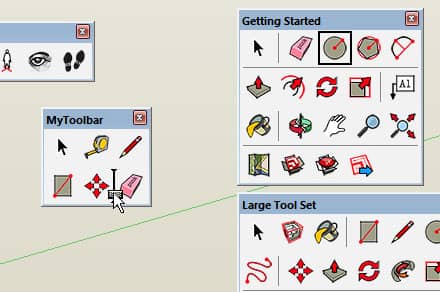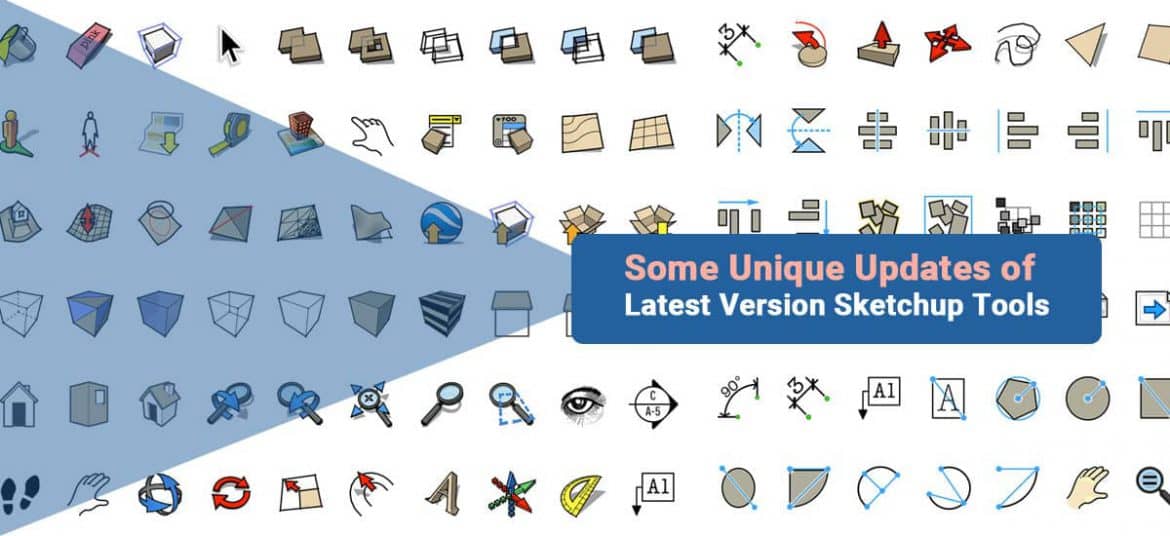You can use SketchUp for many different projects, ranging from video game design to building design. When you use SketchUp, you can see your drawings as they will appear after completion. The program lets you view 3D models from all angles.
This is very useful for 3D designers. It is not just for interior designers and architects. The method can also be applied to video game design, civil engineering, mechanical engineering, and more. For Example, The Move tool in SketchUp can also use as a Copy tool. Extrusion is also possible with Push & Pull when you use a modifier. Trimble wants to reduce the number of clicks you make, speed up 3D thinking, and make undoing as easy as possible.
Unit Translation for Live Components
SketchUp Labs continues to develop Live Components into an even more powerful tool. Additionally, Live Component parameter values will now display in the same unit format as your SketchUp model. As a result, it is much quicker to enter a measurement into a Live Component parameter than using the Tape Measure tool.
New Look Extension Menu
We should give some attention to the extensions menu. This menu heading will always be visible whether extensions are installed or not. You can also access developer tools from here. It’s not a requirement that developers put extensions on the Extension menu, but it is best practice.
Pre-lock Interfaces
Some SketchUp tools offer pre-locking of drawing planes and inference directions. Those features are now available for other tools in this release. Now, you can lock the inference direction for the Line, Tape Measure, and Move tools before clicking.
Modifier Toggles
The most defining change is the addition of toggle keyboard controls that allow you to turn tool modifiers on and off. In this way, fewer tools will require press-and-hold modifier interactions, resulting in better modeling results and, therefore, more efficient use.
If you examine the cursor or on-screen modeling behavior of the tool, you can identify which modifiers are available for a given tool in the Status Bar. It is easier to switch tool states before you complete an operation when more modifiers behave as toggles.
Sticky Modifier
The Multi-operation tool state is now persistent. The user will be able to make multiple copies of an object with Move or hide batches of edges more easily with Eraser across multiple view changes.
Push & Pull Polishing
Since SketchUp was released, Stretch has existed in the Status Bar and Push & Pull cursor but was never referenced or treated as a modifier state. It is especially useful at the earliest stages of form development to stretch a face perpendicular to its drawing plane. Faces can only stretch if adjacent faces are convex to them.
Lay-Out Improvements
SketchUp introduces a faster way to set the size of a viewport in 2021.1. The Camera tab of the model panel lets you type in the size you want. Lay-Out’s ability to find SketchUp viewports was modestly improved in a January update. It’s ready to be updated if you haven’t done so yet.
Export & Classification of IFC4
It is common to exchange IFC files as part of large construction projects. IFC 4 classifications and export capabilities are now available in SketchUp, as are IFC 2×3 schemas and formats. The result is an extremely efficient collaborative process.

Improved Performance on big mesh Extension
Extensions, for example, create or manipulate large areas of geometry. The generation of a large mesh in SketchUp will certainly take longer. Although these operations might make a good reason to make another cup of coffee, SketchUp’s API is now generating large meshes with an order-of-magnitude improvement inefficiency. The improvement is especially noticeable once you reach meshes with more than 20,000 polygons.


